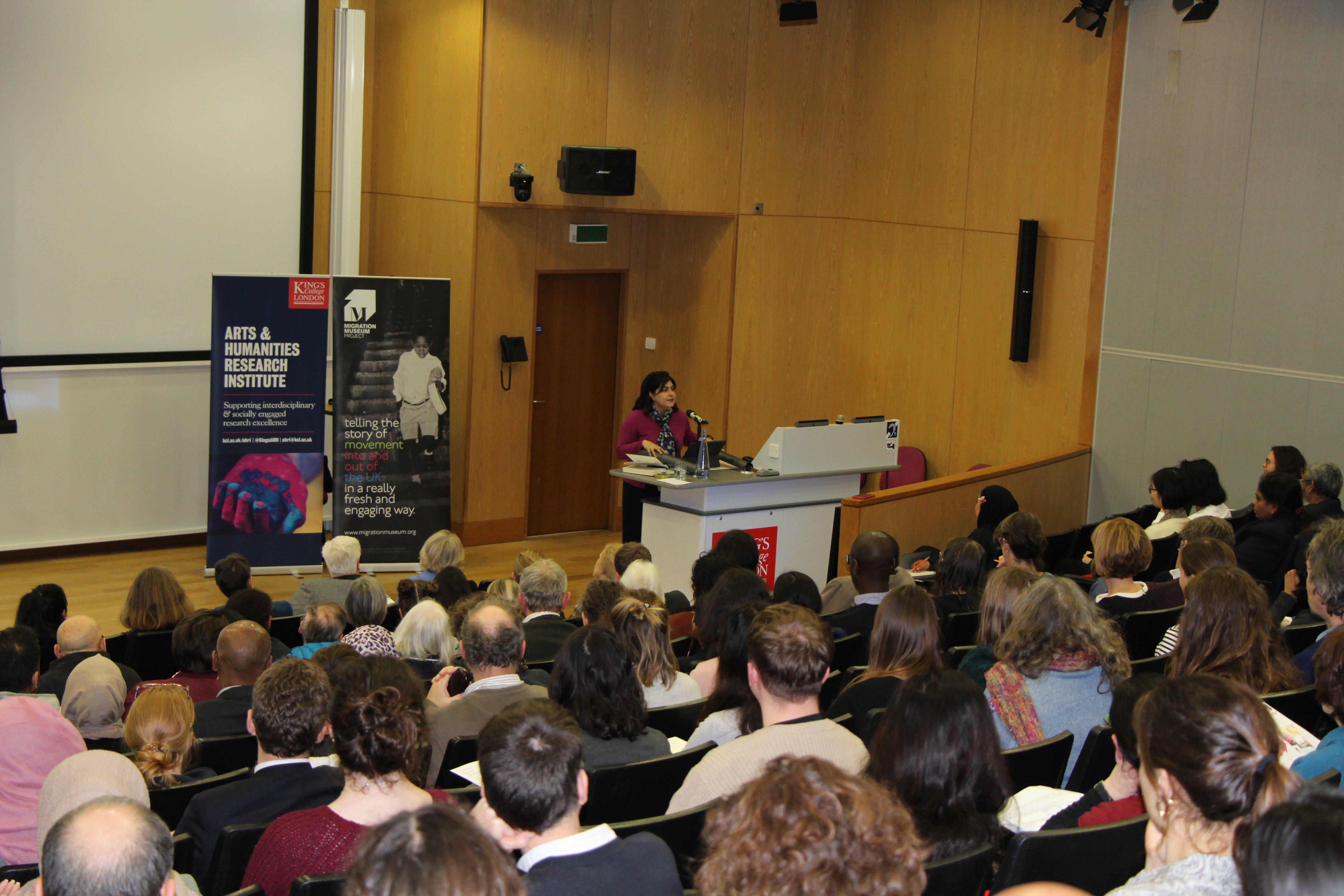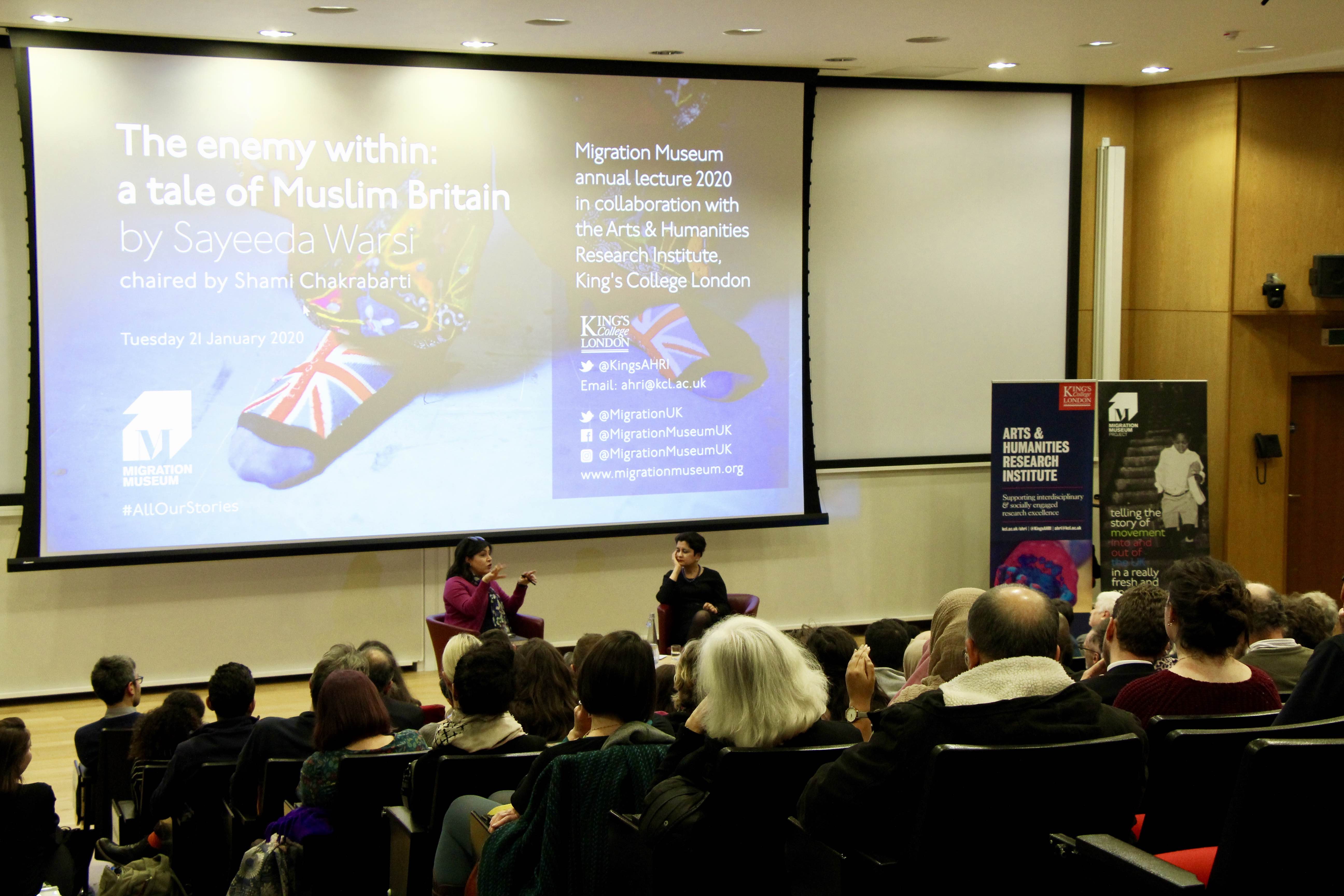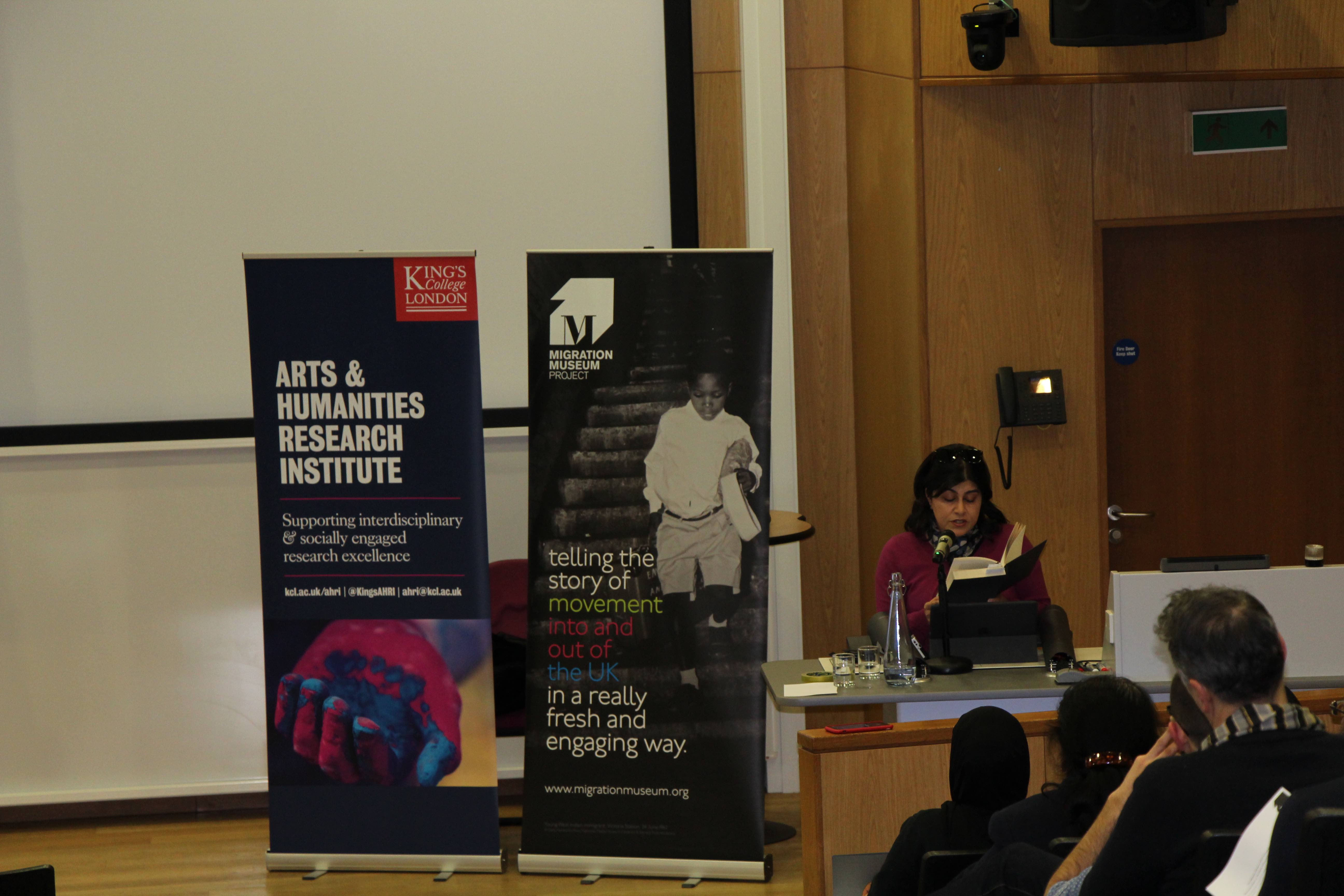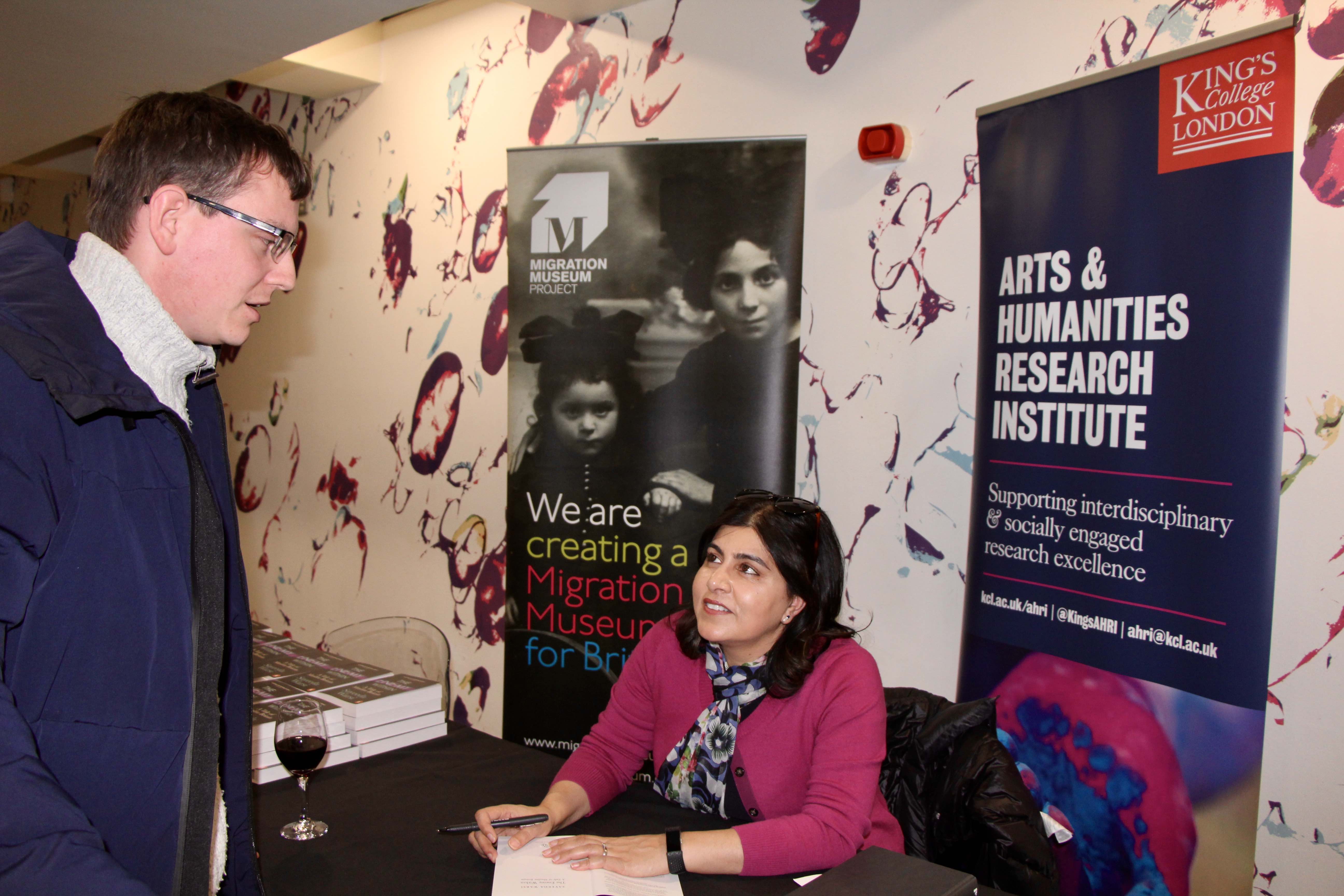The Migration Museum’s 2020 lecture, delivered by Baroness Warsi

All images © Ana-Maria Militaru
It’s safe to say that the Migration Museum lectures don’t disappoint: all have been thought-provoking and inspiring in equal measure, from Michael Rosen’s lecture on ‘The Languages of Migration’ in 2014 to David Olusoga’s ‘The Perils of our Insular Illusion’ in 2018.
But the lecture that Baroness Sayeeda Warsi gave on Tuesday 21 January at King’s College London was a bit special – particularly because it was introduced and chaired by her friend, Baroness Shami Chakrabarti, who has spoken eloquently about their cross-bench friendship previously, referring to Sayeeda Warsi as her ‘naughty little sister’. From her introduction to the lecture to the interview that followed it, there was a political friendship on display that was affectionate but challenging, exploring differences, questioning positions – in essence, a representation of what Baroness Warsi was saying that the UK itself needed right now.

Sayeeda Warsi’s lecture explored the rise of Islamophobia and described the challenge of navigating complex currents of religion, identity and allegiance as a British Muslim and a high-profile politician in her talk. But, because, for her, migration was all about stories, ‘stories that make up who we are as Britain’, there were also stories, mostly about her family, who, as she said, had been British for 150 years – both her grandfather and her great-grandfather having fought ‘for’ Britain in the two world wars of the 20th century.
In a wide-ranging and thought-provoking lecture, based in part on her best-selling book, The Enemy Within, Baroness Warsi started by posing four provocative questions for the audience:
- Whose country is Britain?
- Which migrants are/were acceptable, and which are not?
- Who has the right to belong?
- Why are the children of migrants always told to be grateful?

As part of her response to these questions, she recounted her mother’s keenness to buy a house in Pakistan, ‘for when they kick us out of here’ – a position that Baroness Warsi at the time thought was absurd. After all, who was this ‘they’? And who were ‘we’? And wasn’t the situation in Britain getting better by the year, and Enoch Powell becoming increasingly a distant memory of a bygone age?
Over the last few years, however, Baroness Warsi had come to understand her mother’s position more and more. In the course of the 2016 referendum – for which, as she explained in the talk, she had been an early supporter of the Leave campaign before stepping down, worried at what she called its xenophobia – immigration, never far from the number one spot in most papers’ headlines, took up a fixed position there for the next year or two. And, of course, what many voters meant by immigration was essentially (if erroneously) Muslim immigration.
In an atmosphere of anxiety and apprehension at the drift in public discourse towards intolerance and incivility, Baroness Warsi remained cautiously optimistic. Migration was about stories, she said, and the more people heard these stories, the less able they were to demonise the migrants involved; similarly, nothing was likely to defeat Islamophobia and racism more than the simple matter of people living alongside each other and forming relationships (there was silent applause from all Migration Museum members at this point!). And Britain itself was a work in progress, as it always has been. People who think its identity is static, fixed and determined are just not facing up to historical reality – the country and its identity have been constantly evolving, and always will. Look, for example, she said, at the difference between Margaret Thatcher’s promotion of the infamous Section 28 (which banned the ‘promotion’ of homosexuality, or the promotion of ‘the acceptability of homosexuality’, in schools) and David Cameron’s government in 2010, which legalised same-sex marriages.

Things had to change, of course. Baroness Warsi suggested that Muslim communities needed to be more active in their exposition of Islam and not wait for an incident such as a terrorist attack before denouncing such behaviour as contradictory to their religion. And Britain as a whole needed to recognise that ‘diversity’ was not people of different skin tones holding exactly the same opinions as their ‘white’ colleagues – real diversity was an acceptance of difference, a challenging of different positions, and a movement onwards, propelled by those differences. The affectionate and respectful way in which Baroness Warsi and Baroness Chakrabarti challenged each other’s positions was itself an expression of the diversity Baroness Warsi was calling for.
The lecture was also a celebration of a new partnership between King’s College London’s Arts and Humanities Research Institute and the Migration Museum, and Professor Anna Reading and Dr Leonie Ansems de Vries gave short talks about the academic research being undertaken into migrant studies.
The 300 or so attendees traipsed out into the grey, gloomy Tuesday evening afterwards with a little nugget of hope.


Leave a Reply